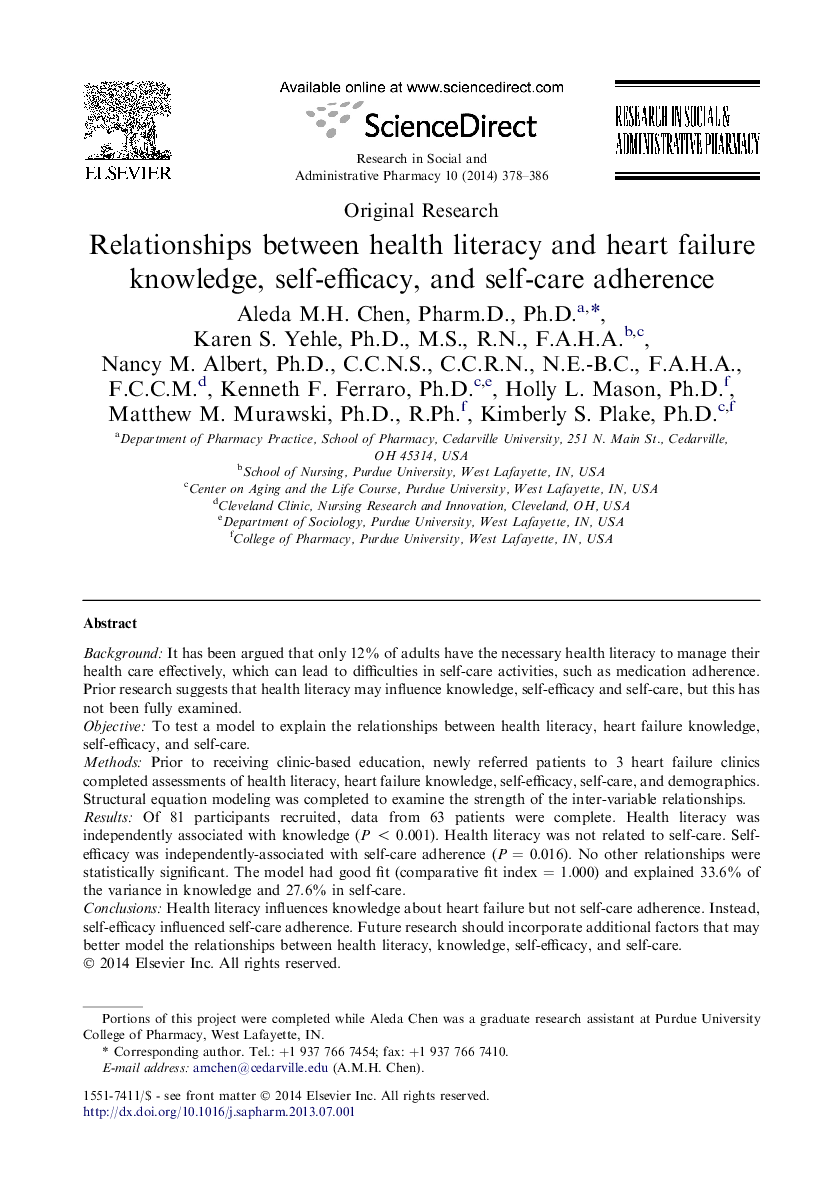| Article ID | Journal | Published Year | Pages | File Type |
|---|---|---|---|---|
| 2508575 | Research in Social and Administrative Pharmacy | 2014 | 9 Pages |
BackgroundIt has been argued that only 12% of adults have the necessary health literacy to manage their health care effectively, which can lead to difficulties in self-care activities, such as medication adherence. Prior research suggests that health literacy may influence knowledge, self-efficacy and self-care, but this has not been fully examined.ObjectiveTo test a model to explain the relationships between health literacy, heart failure knowledge, self-efficacy, and self-care.MethodsPrior to receiving clinic-based education, newly referred patients to 3 heart failure clinics completed assessments of health literacy, heart failure knowledge, self-efficacy, self-care, and demographics. Structural equation modeling was completed to examine the strength of the inter-variable relationships.ResultsOf 81 participants recruited, data from 63 patients were complete. Health literacy was independently associated with knowledge (P < 0.001). Health literacy was not related to self-care. Self-efficacy was independently-associated with self-care adherence (P = 0.016). No other relationships were statistically significant. The model had good fit (comparative fit index = 1.000) and explained 33.6% of the variance in knowledge and 27.6% in self-care.ConclusionsHealth literacy influences knowledge about heart failure but not self-care adherence. Instead, self-efficacy influenced self-care adherence. Future research should incorporate additional factors that may better model the relationships between health literacy, knowledge, self-efficacy, and self-care.
